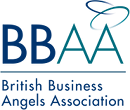Host
The Royal Society is a Fellowship of the world's most eminent scientists and is the oldest scientific academy in continuous existence. We aim to expand the frontiers of knowledge by championing the development and use of science, mathematics, engineering and medicine for the benefit of humanity and the good of the planet.
Our priorities address the future of science in the UK and beyond. We aim to invest in future scientific leaders and in innovation; influence policymaking with the best scientific advice; invigorate science and mathematics education; increase access to the best science internationally; and inspire an interest in the joy, wonder and excitement of scientific discovery.
Our Fellows and Foreign Members, who are elected for life on the basis of scientific excellence, have included Isaac Newton, Charles Darwin, Ernest Rutherford, Albert Einstein, Dorothy Hodgkin, Francis Crick, James Watson and Stephen Hawking. Today there are approximately 1,500 Fellows and Foreign Members, including more than 80 Nobel Laureates.
The Society has three roles: it is the UK academy of science promoting the natural and applied sciences, a learned society, and a funding agency.
As the UK’s independent national academy, the Society represents the British scientific community within Britain and in relations with individuals and group of scientists throughout the world. The government recognises the Royal Society as a ‘component body’ for Tier 1 immigration.
As a learned society, the Society publishes nine peer-reviewed journals, including Philosophical Transactions of the Royal Society, the world’s oldest scientific title. Awards for outstanding achievement are made each year in the form of medals, prizes and prize lectureships. The Society also hosts various events including conferences, lectures and discussion meetings and houses one of the world’s most important collections of 17th and 18th century scientific journals and books in its library.
As a funding agency, the Society supports more than 460 post-doctoral fellowships and 17 professorships. We also provide grants for more than 3,000 scientists from the UK and abroad to undertake research and participate in visits, projects and conferences. Our funding schemes are designed to enhance the UK science base and foster collaboration between UK-based and overseas scientists.
The Society is governed by an elected Council of 21 Fellows, which is headed by the President, Sir Paul Nurse. The Council and Officers are supported by a permanent staff of around 140.
The Society is a registered charity (no. 207043) and receives support in the form of gifts and legacies from a range individuals and organisations. The Society’s 350th anniversary campaign has made good progress towards its goal of raising over £100 million. The Society has an endowment from which it runs most of its work and receives money each year as a Parliamentary Grant-in-Aid to support specific activities.
The Society’s main offices are on Carlton House Terrace in Central London. In 2010 the Society also acquired Chicheley Hall in Buckinghamshire which has been transformed into the Kavli Royal Society International Centre.






